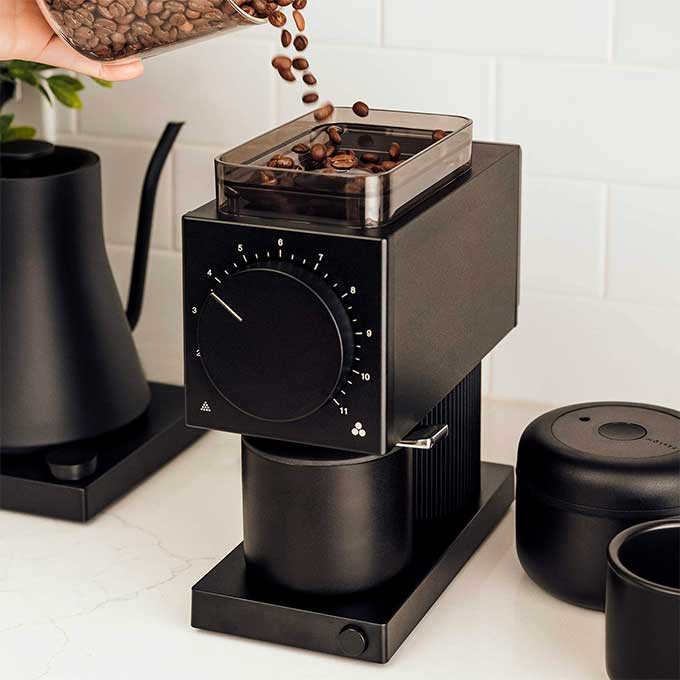Dark chocolate is one of the most beloved treats in the world. Whether you’re looking for a sweet snack, a mood boost, or a natural source of antioxidants, dark chocolate is the go-to choice for many. But one question remains: is there caffeine in dark chocolate?
In this article, we’ll uncover the sweet truth about whether or not dark chocolate contains caffeine and explore the potential health benefits of the favorite treat.
So Does dark chocolate Have caffeine?
Yes, dark chocolate does contain caffeine. Caffeine is naturally found in cocoa beans, the main ingredient in dark chocolate. The amount of caffeine in dark chocolate varies depending on the type of chocolate and the amount of cocoa used in its production.
How Much Caffeine Is In Dark Chocolate?
Generally, a one-ounce helping of dark chocolate with a cocoa content of 70 percent contains roughly 25 milligrams of caffeine. In contrast, the same serving with a cocoa content between 45 and 59 percent provides only 12 milligrams of the stimulant.
Caffeine in dark chocolate vs. other types of chocolate

Dark chocolate contains more caffeine than milk and white chocolate. Milk chocolate contains about 9 milligrams of caffeine, and white chocolate contains about 1 milligram. These two types of chocolate contain much lower levels of caffeine because they are made with more processed cocoa and added sugar. Milk and white chocolate also contain saturated fat, which can contribute to high cholesterol and other health problems if consumed in large amounts.
Comparison with Coffee and Tea
It may seem difficult to compare the caffeine content of dark chocolate with coffee when there is such a variety of coffee drinks out there, from espressos to lattes to cappuccinos, each with its own unique flavor profile. However, caffeine can be easily calculated if you know how many espresso shots go into it. Roughly speaking, a single shot of espresso packs around 64 milligrams of caffeine, while a standard 8-ounce cup of brewed coffee has approximately 95 milligrams of the energizing stimulant.
In terms of tea, a cup of traditional black tea will give you a solid 47 milligrams of caffeine, while a cup of green tea might give you a bit less, with 29 milligrams.

The caffeine content also varies depending on brewing time and method. For instance, if you steep coffee grounds for twice as long as normal, you will get double the amount of caffeine. In comparison, when making tea, steeping for too long can make the tea bitter and reduce its caffeine content.
Nevertheless, the figures show dark chocolate doesn’t contain nearly as much caffeine as coffee and tea. Moreover, when the cocoa beans are pressed, the caffeine remains within the cocoa solids and is not found in the fats. These fats are believed to have the power to slow down caffeine absorption when compared to coffee, resulting in a longer-lasting energy boost without the dreaded ‘crash’ afterward.
Advantages of dark chocolate
There are many advantages to eating dark chocolate. It contains flavonoids, which are beneficial for heart health, and can help lower blood pressure and cholesterol. Flavonoids are also powerful antioxidants that can help protect the body from free radical damage and even reduce inflammation. Dark chocolate also has mood-elevating properties, as it contains theobromine and anandamide, two compounds that can help boost mood.
Eating dark chocolate can also help reduce stress and can even improve cognitive performance. It can help boost focus and concentration and can improve memory and alertness. Dark chocolate is also a great source of magnesium and iron, both essential minerals for the body. Magnesium can help reduce fatigue and improve energy levels, while iron helps to carry oxygen around the body, which can help improve circulation. Dark chocolate is also high in fiber, which can help with digestion.
What is the ideal amount of Dark Chocolate to consume?

Dark chocolate is a tasty and nutritious snack, but it’s important to practice moderation. A single ounce of dark chocolate contains 170 calories and 12 grams of fat, 7 of which are saturated, so it’s important to be mindful of how much you’re consuming. To make the most of the health benefits of dark chocolate, look for bars that are high in cocoa and low in sugar, and avoid bars with added ingredients that increase the calorie and fat content.
In terms of caffeine, a safe amount of caffeine to consume each day is generally considered to be between 200 and 400 milligrams. Too much caffeine can cause adverse effects like headaches, jitters, and even insomnia.
It is important to note that caffeine affects everyone differently. Some people may find that they can handle more caffeine than others. It is important to listen to your body and adjust your caffeine intake accordingly. Additionally, it is important to be aware of other sources of caffeine, such as tea, soda, and energy drinks, as these can quickly add up.
Contents


